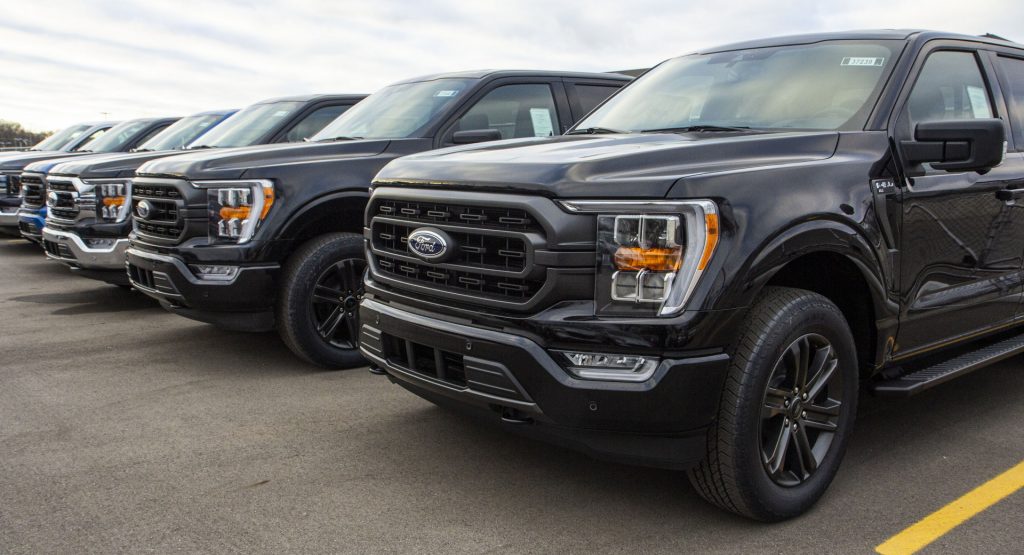Ford has secured a new supply of semiconductor chips that it says will allow it to ship thousands of F-Series pickup trucks to dealers in the near future.
The company’s first job, according to the Detroit Free Press, will be to finish trucks that have already been mostly assembled and are awaiting chips to be completed. Those trucks are being stored in parking lots near plants in Michigan, Kentucky, and Missouri.
“We’re working to get chips into F-Series pickups and get them out to dealers. That’s our first priority,” Erich Merkle, U.S. sales analyst at Ford told the outlet. “We’ll see our inventories improve. It’ll take time but stock will gradually start to improve the second half of the year.”
Read Also: Chip Shortage 101: Why Car Makers Can’t Keep Up With Demand
The automaker did not reveal exactly how many vehicles the new supply of chips would get into dealerships. We reached out to Ford for more and a spokesperson said the following:
While we continue to manufacture new vehicles, we’re prioritizing building our customers’ vehicles that were assembled without certain parts due to the industry-wide semiconductor shortage. This is in line with our commitment to get our customers their vehicles as soon as possible and consistent with our forecasted supply. To prioritize these builds, we are changing production plans at some plants in North America.
Merkle told Freep that Ford inventory is at “record lows” right now and that that’s “having a near-term impact on sales.” Indeed, Ford’s sales in June were down 26.9% in June as compared to last year, even though last June was the height of the pandemic.
The long-term effects of the pandemic, specifically the chip shortage, have had ripple effects throughout the industry and most automakers have had to reduce or even halt production of certain models as a result.
Of Detroit’s big three, though, Ford has struggled the most with year-to-date sales in 2021. GM and Stellantis have seen sales rise 19.8% and 17%, respectively, as compared to Ford’s 4.9%.
Ford has previously said that its strategy was to prioritize the completion of new and exciting vehicles, like the all-electric Mustang Mach-e. That has worked to an extent, with the electric SUV outselling the sports car after which it is named despite the overall sales struggles.
The impact of the low supply around the industry means that many shoppers are turning to second-hand vehicles. As a result, some high-demand used cars are being sold for more than their MSRP when new and dealers have increasingly been looking to the Canadian used market for supply.






